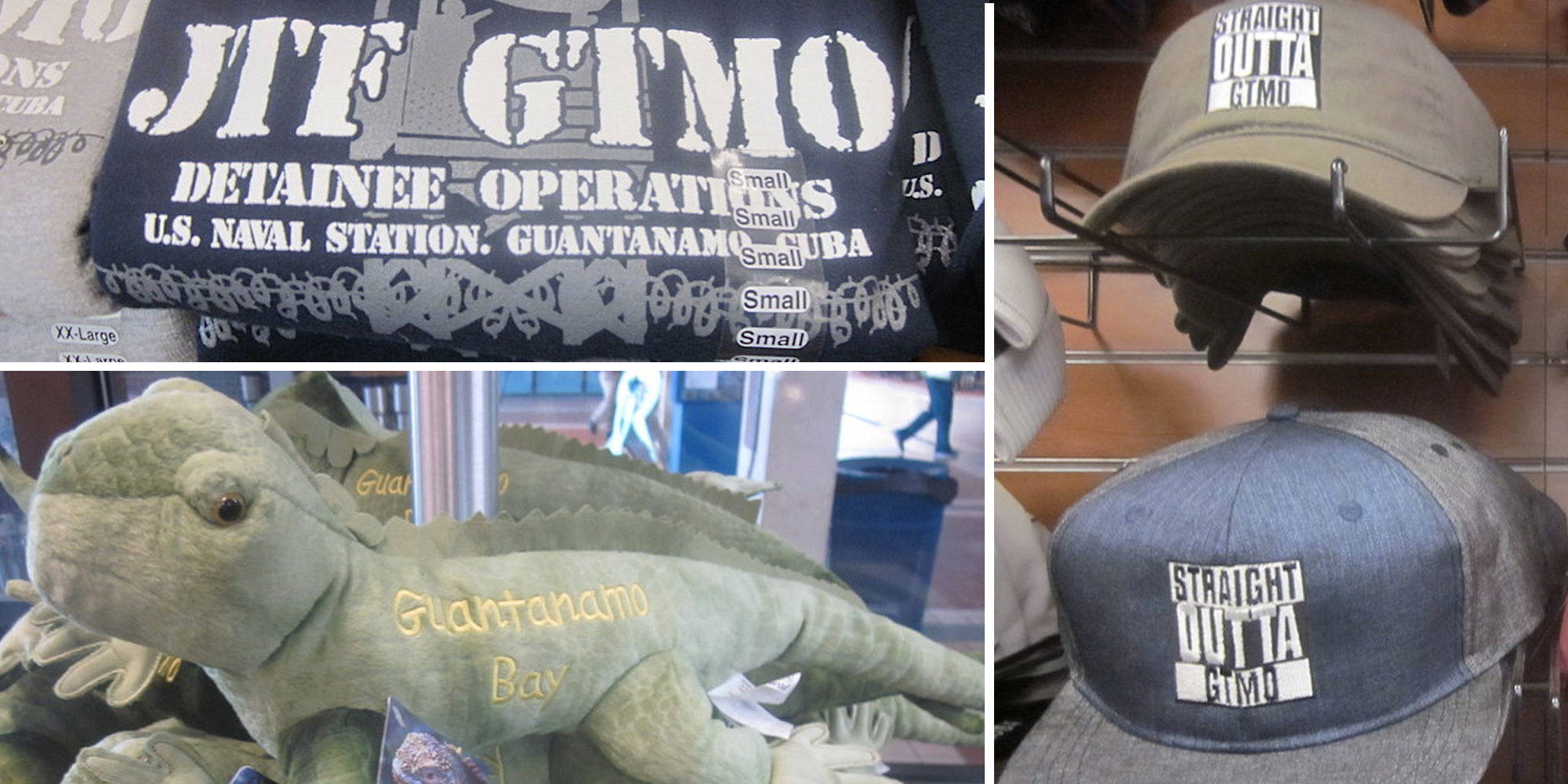- Guantanamo Bay, Cuba, is known as being home to the US military detention camp accused of perpetrating human-rights abuses on prisoners.
- But life on the US naval base, surprisingly, resembles an American suburban town, and residents there don’t like talking about the prison, journalist Sarah Mirk said.
- It even has a souvenir shop that sells T-shirts, beer koozies, Frisbee discs, and mugs with “Straight Outta GTMO” written on them.
- Take a look at the bizarre gift shop through Mirk’s photos.
- Visit Business Insider’s homepage for more stories.
Less than five miles from the Guantanamo Bay military camp, where inmates are allegedly abused and tortured, is a gift shop that sells themed T-shirts, beer koozies, and mugs that say: “Straight Outta GTMO.”
The gift store has existed since at least 2015, when The New York Times Magazine published photos of the souvenirs sold there at the time.
Take a look at what the gift shop looks like now in these photos taken by journalist Sarah Mirk. She visited the store in April and is currently writing a book about the base.
Welcome to southwestern Guantanamo Bay, Cuba, an island that’s home to a US naval base and notorious high-security detention camp. The gift store and military prison are about 4.5 miles away from each other.

Surrounding the gift shop — which is operated by the US Navy Exchange — are a number of familiar outlets, like Subway and McDonald’s.
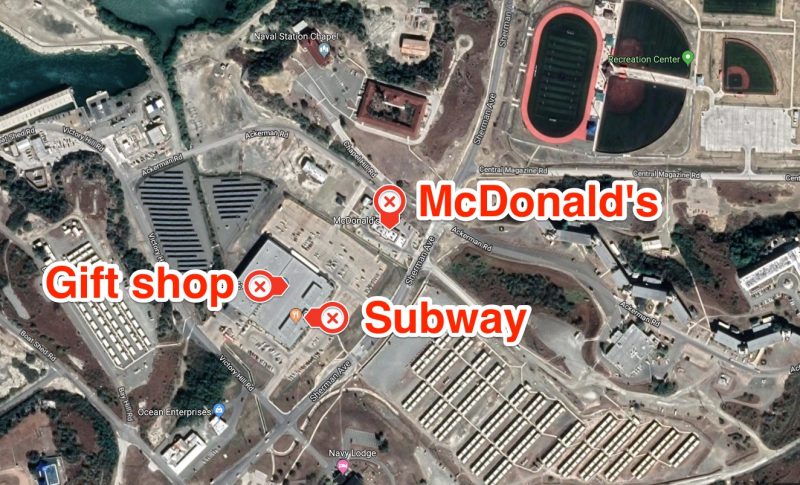
The Navy Exchange is a retail store owned and operated by the US Navy, which Mirk descibed as a “big everything-you-need store you’ll find on any Naval base.”
There you can find multiple mini marts and a car rental service, according to the Navy Exchange website.
The base is home to about 6,000 people, which includes members of the US Navy, the 40 prisoners in the detention camp, and the 1,800 troops and contractors that operate it.

The 40 prisoners were detained in the camp under former President George W Bush's "war on terror."
Former President Barack Obama signed an order in 2009 ordering the transfer or prosecution of the remaining inmates, and the closure of the camp "no later than one year" afterward.
Ten years later, this hasn't happened. The camp remains in use today.
Source: Miami Herald, Office of the Federal Register
But the people who live on the base have a fairly normal, almost suburban life. "Nobody likes talking about the prison. Illegal detention operations are the big elephant in the room," Mirk told Business Insider.
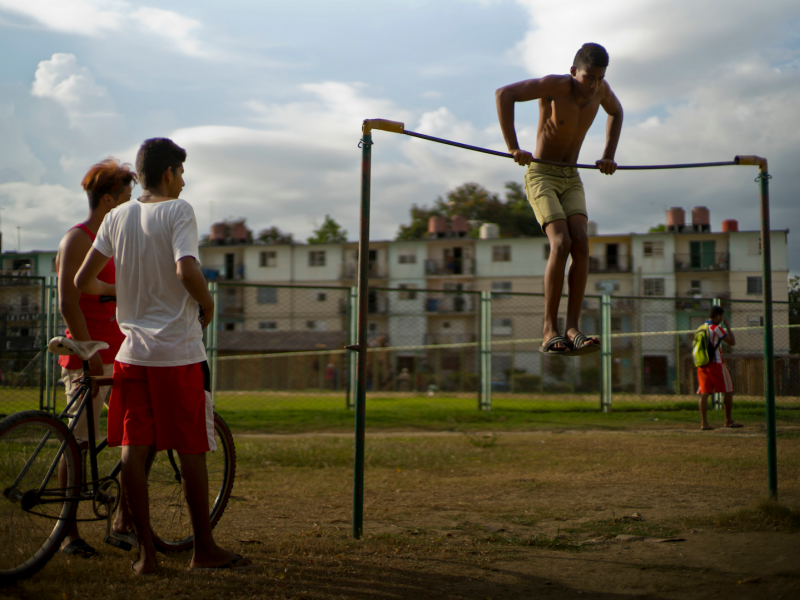
The prison is located far away from the base and most people aren't allowed to go there, Mirk said, "so it feels like 'out of sight, out of mind.'"
According to The New York Times, the base hosts outdoor movie nights, weekly flamenco lessons, a kickball league, and even a yearly marathon.
"I was repeatedly struck by how something resembling suburban American life played out beside a detention system so un-American that it has intentionally been kept off American soil," Times correspondent Dave Philipps said.
When Mirk visited the base earlier this year, the local library was hosting an Escape Room — "not ironically," she noted.
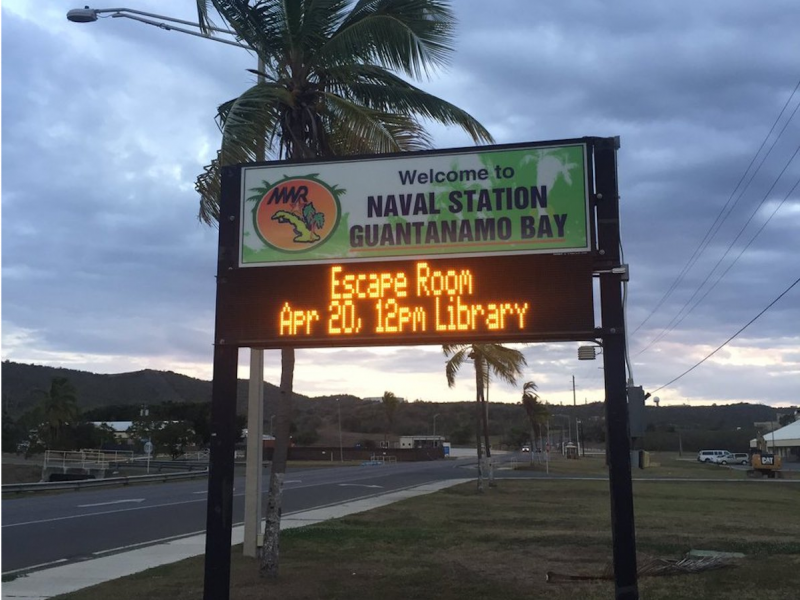
Here's what the entrance of Guantanamo Bay's Navy Exchange looked like in 2012. The souvenir shop is one part of the complex.
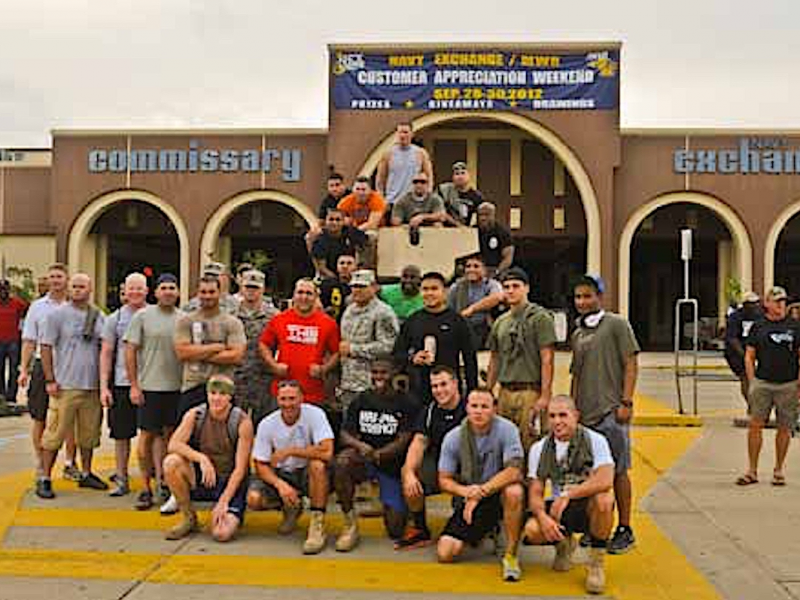
The items on sale at the shop range from touristy to downright bizarre. First, here's a shelf of mugs with photos of the bay.

Some other mugs have the flags of the US, Cuba, and Jamaica on them — likely representing the countries whose citizens live on the base.

More than a third of the residents on the naval base are Jamaicans and Filipinos on contract with the Department of Defense, and who - unlike US sailors - aren't allowed to bring their families, the Miami Herald reported.
Most people who work in Guantanamo's shops are actually contract workers from Jamaica and the Philippines, Mirk added.
They are paid significantly less than their American counterparts, as can be seen on the Navy's job listings page.
Foreign nationals earn $5.90 per hour to be a bartender at the base's O'Kellys Bar, while US citizens earn $10.25 per hour, for example.
This mug also references the base as GTMO — the US military's code name for Guantanamo Bay — playing on the 1988 NWA album "Straight Outta Compton."
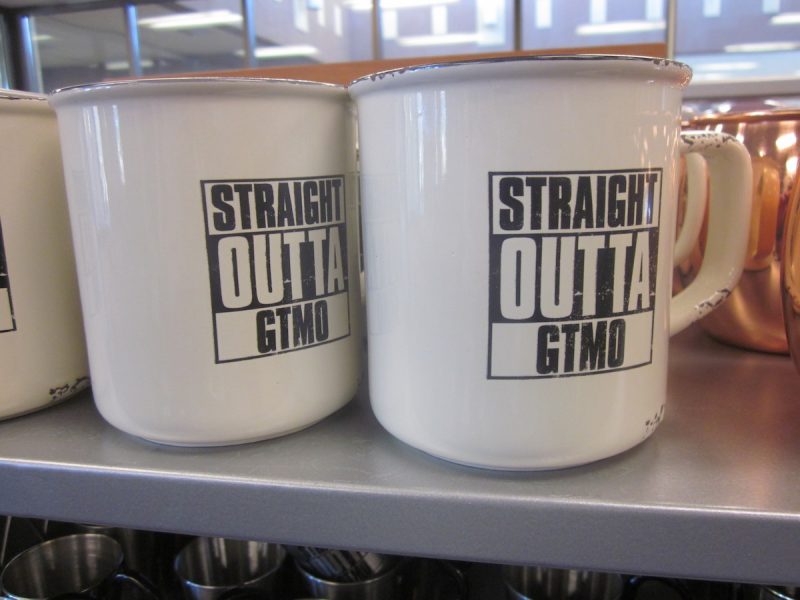
You can also find this graphic on various colors and styles of caps.
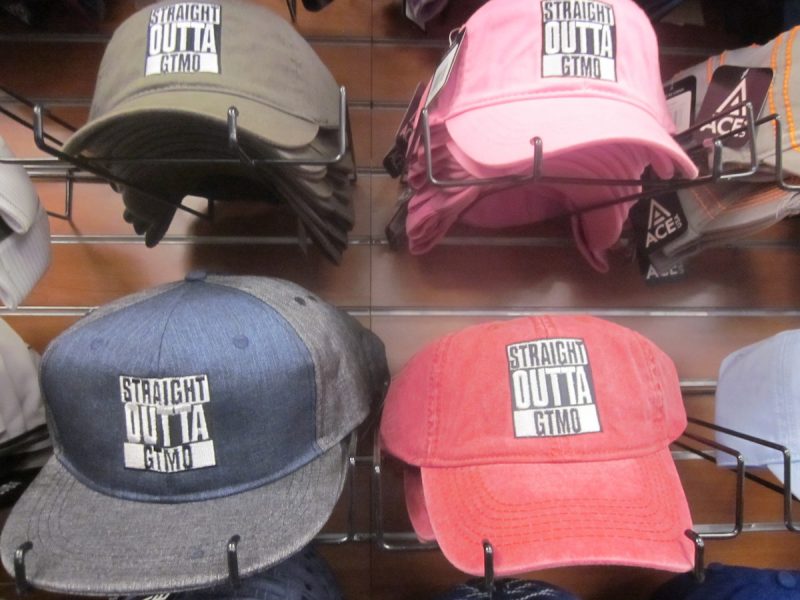
Elsewhere in the shop, you can also find branded Frisbee-style discs ...
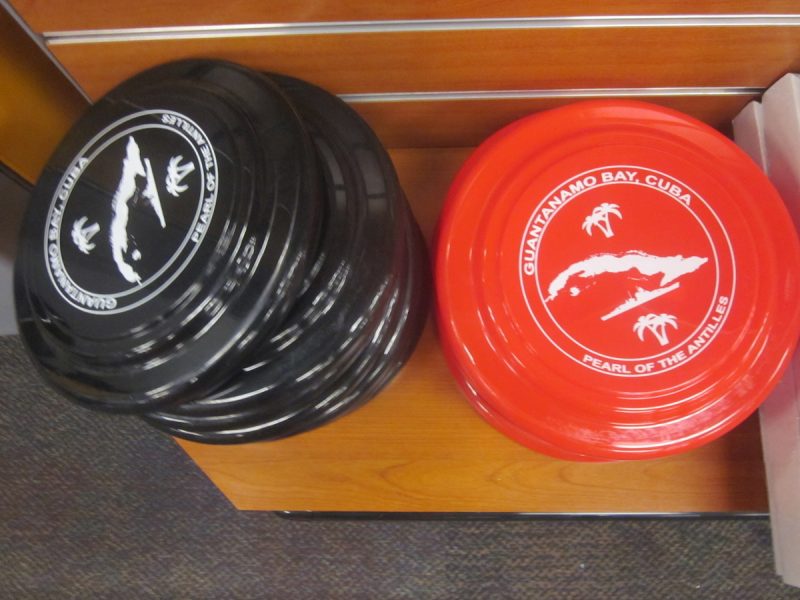
... and even beer koozies.
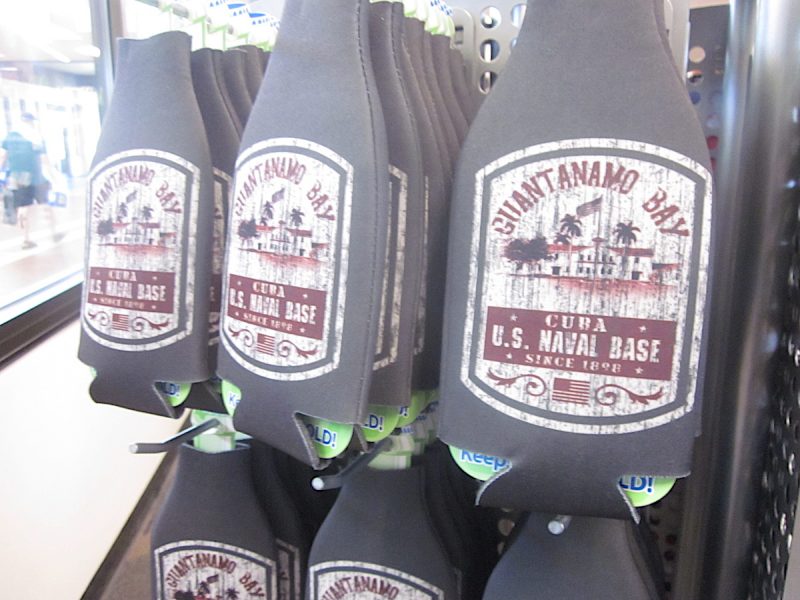
Even though Mirk said most of the base's residents try not to bring up the detention camp, it looks like the shop doesn't mind mentioning it. This T-shirt with the words "JTF [Joint Task Force] GTMO Detention Operations" emblazoned on a graphic of barbed wire and security guards.
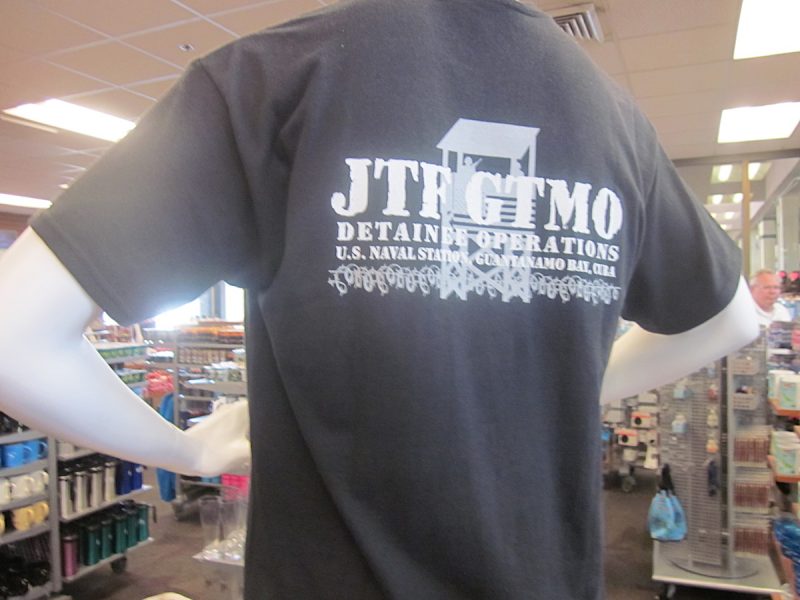
You can also buy hoodies with that wording and graphic in different colors.

Less serious T-shirt options are also available. Here's a shirt depicting a shocked-looking minion — from the "Despicable Me" movie franchise — with the words "Guantanamo Bay" on its chin.
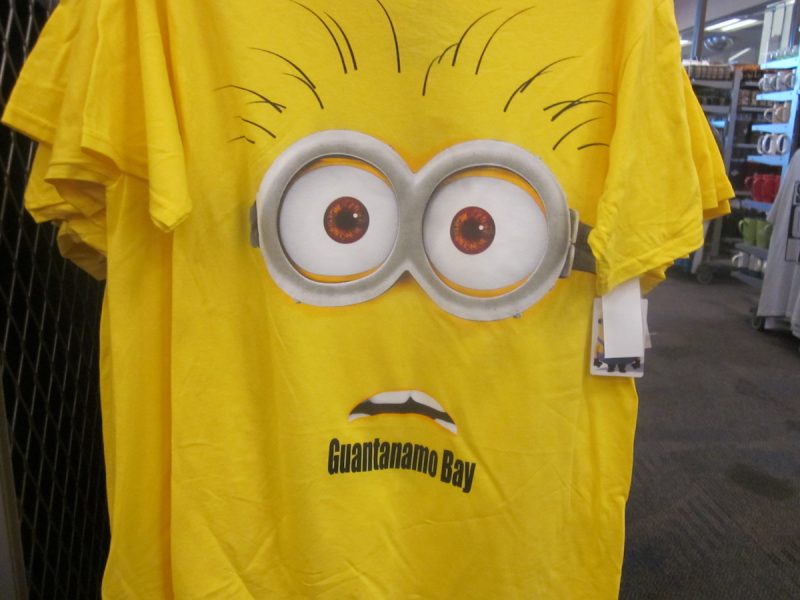
The shop also sells caps and T-shirts of Mickey and Minnie Mouse ears with the words "Dad" and Mom" on them, with — of course — "Guantanamo Bay" underneath.
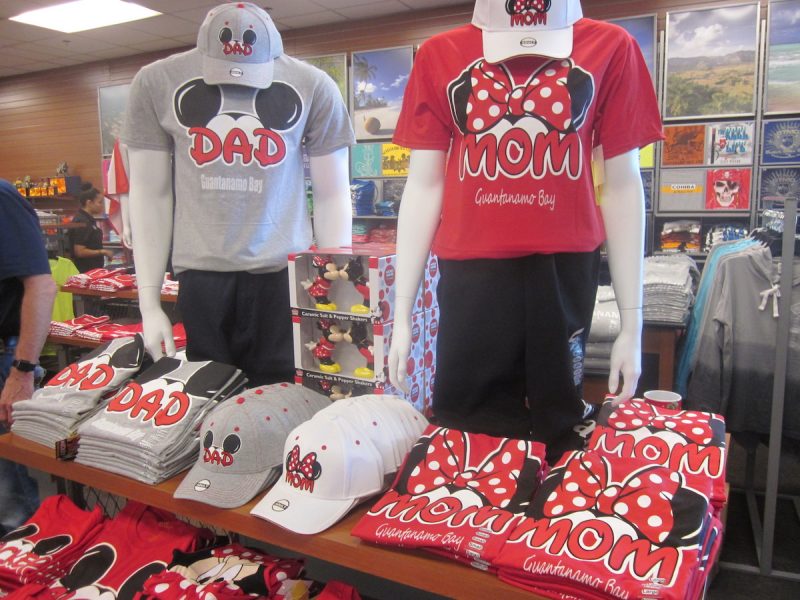
Kids can also go home with a stuffed, Guantanamo Bay-branded stuff vulture...
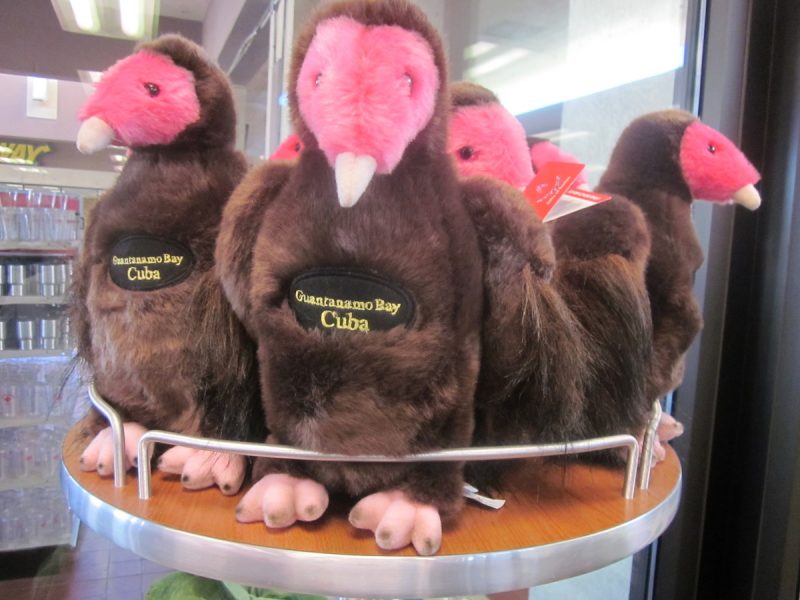
... or this branded, stuffed lizard-like creature. "The image the items in the gift shop presents is that Guantanamo is a 'fun in the sun, place full of exotic animals and beaches," Mirk said.
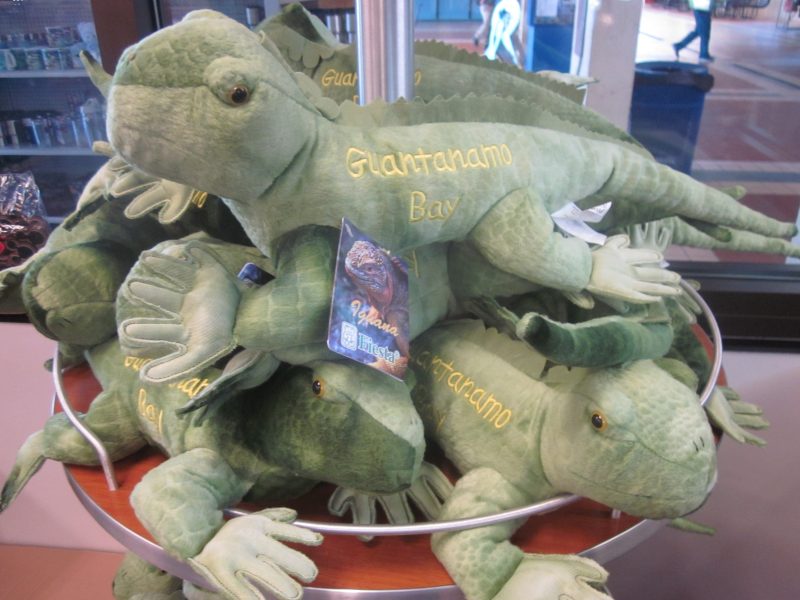
"That's the image the United States government wants to maintain, too," Mirk added. "That the prison is 'safe, humane, and legal,' and the prisoners aren't having such a bad time on this tropical island."


